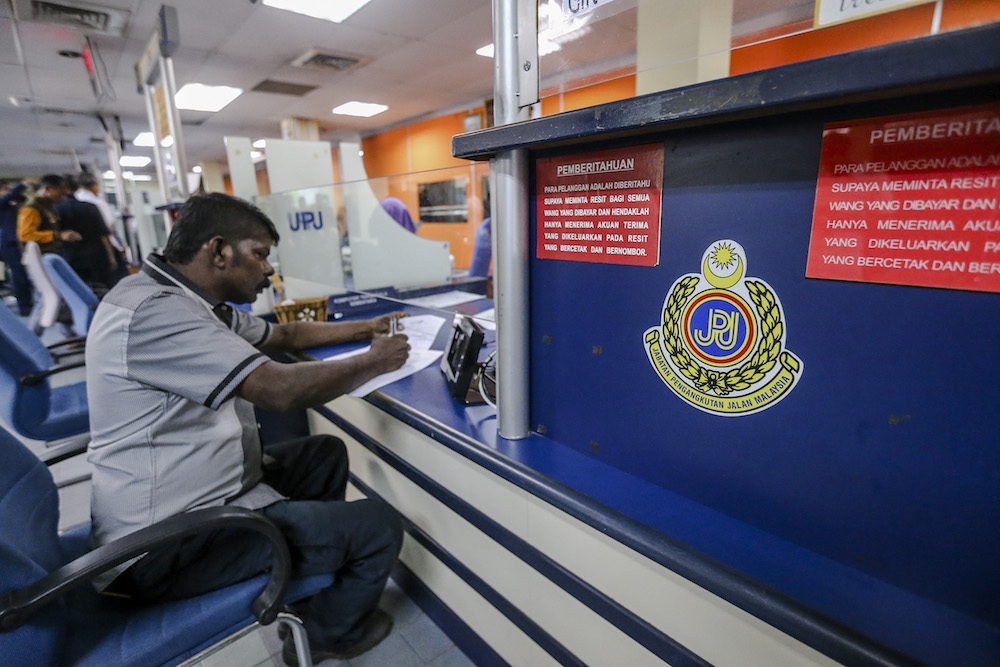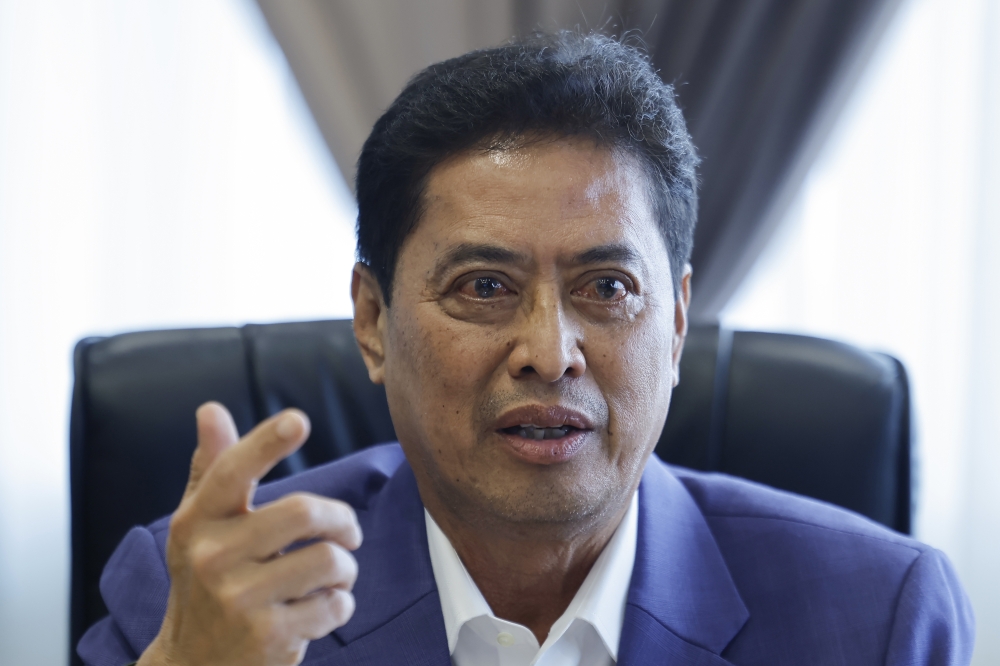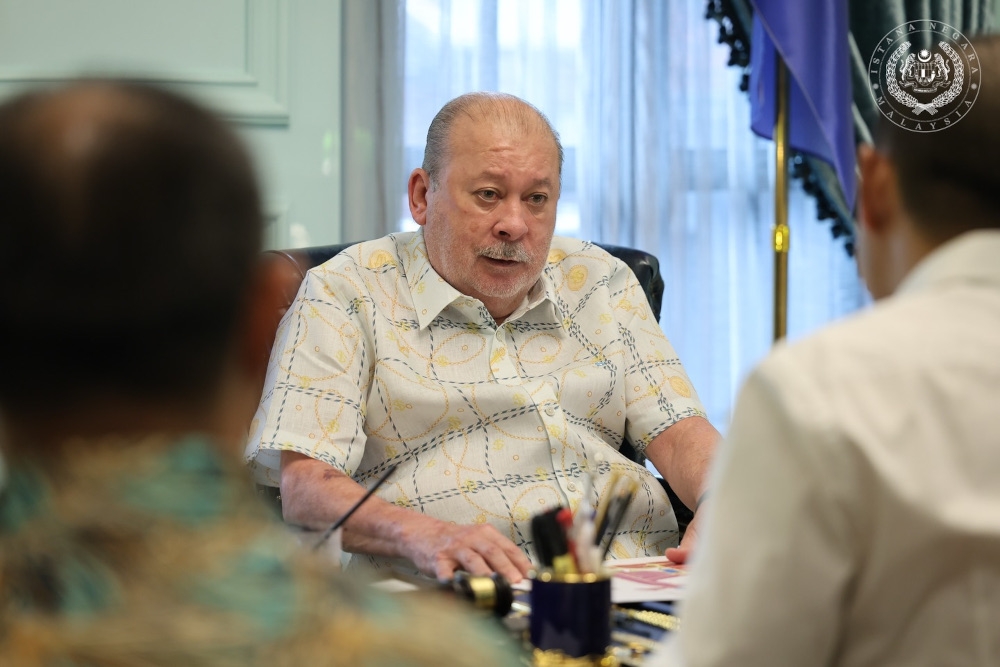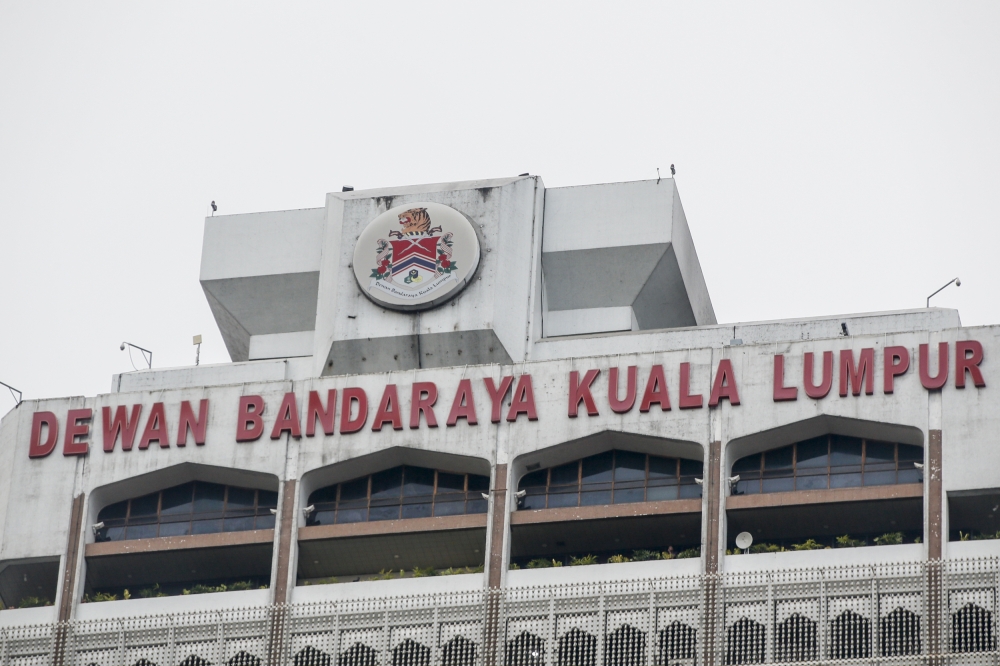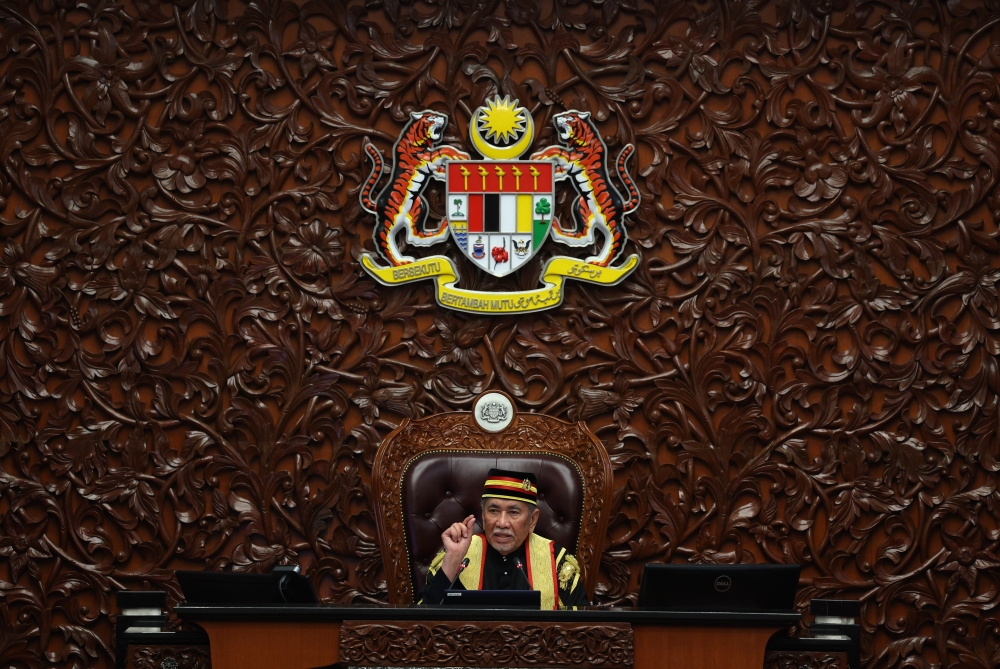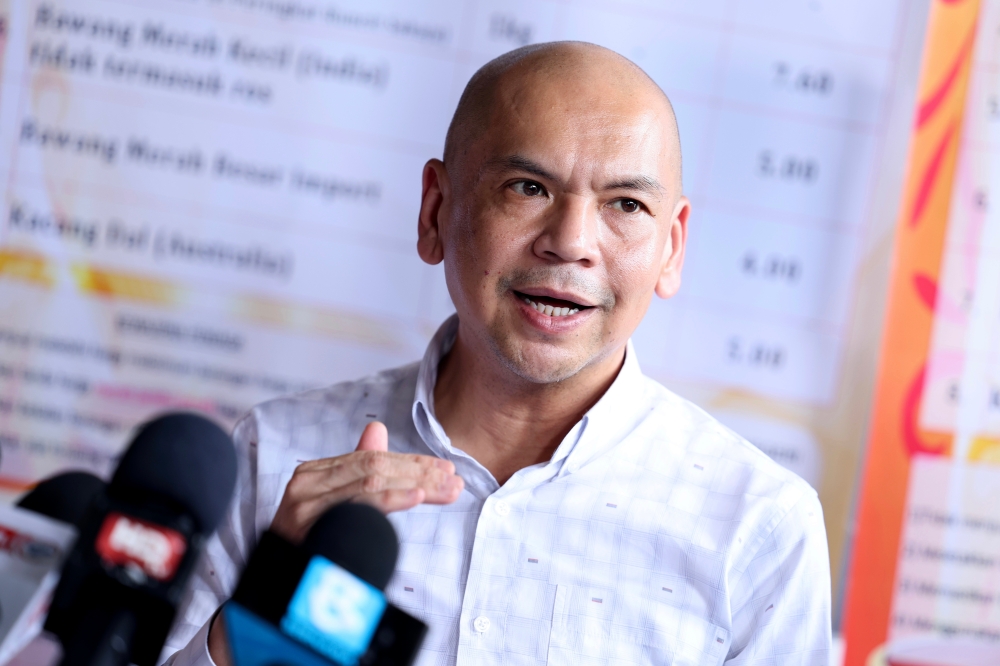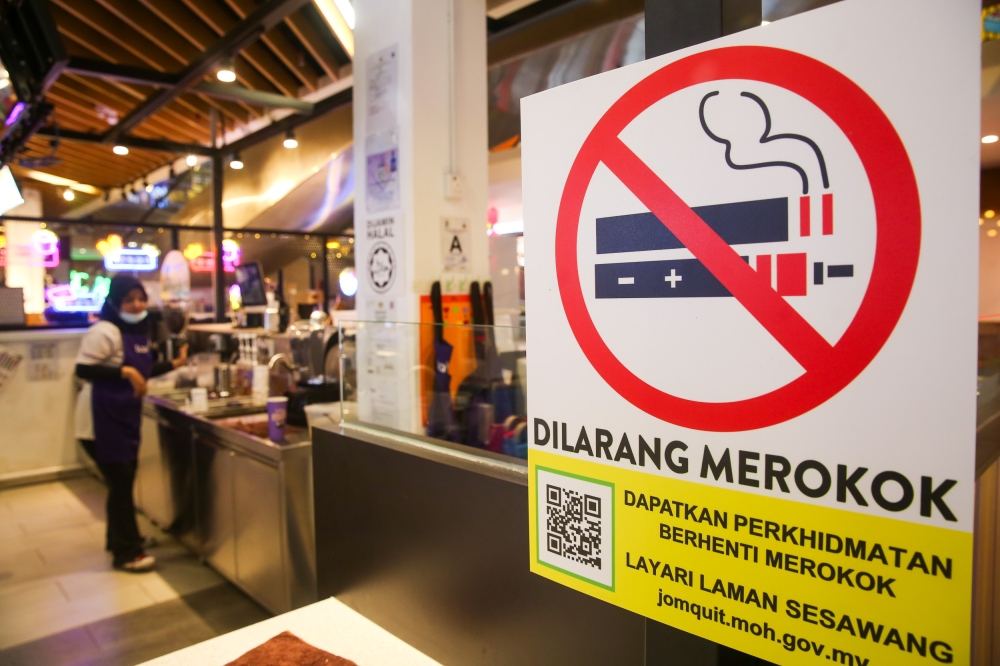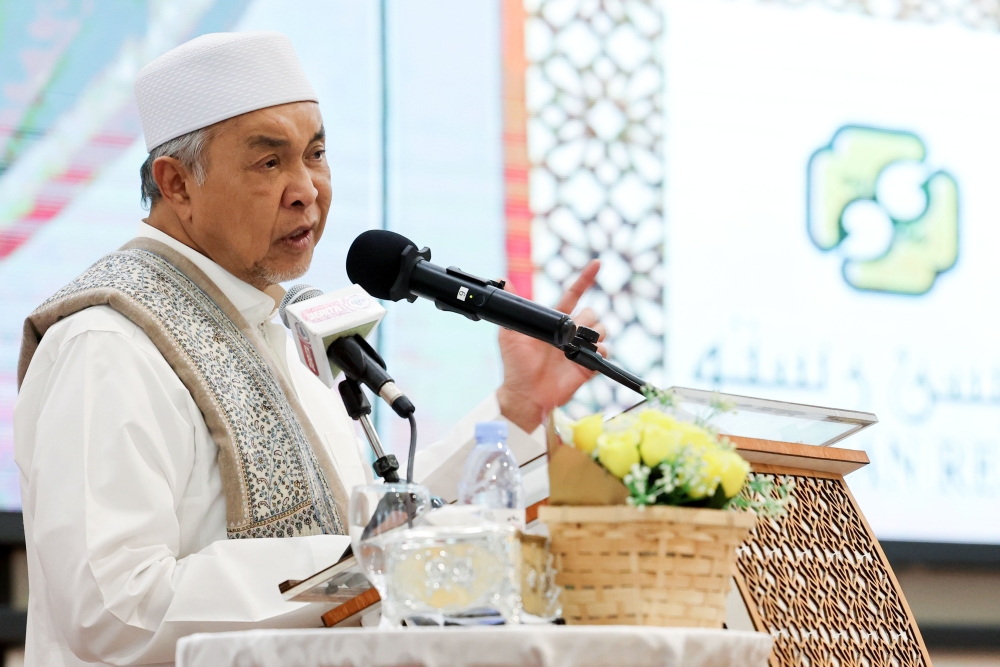KUALA LUMPUR, Nov 17 — Dewan Negara speaker Tan Sri Wan Junaidi Tuanku Jaafar today said appropriate action concerning the Anti-Party Hopping Bill can be taken within the political party itself.
In a statement today, he said any individual found in violation of the conditions specified could face automatic disqualification from party membership.
“Regarding suggestions to amend the Anti-Party Hopping Act of 2022, I believe appropriate action can be taken at the party level by establishing a list of offences that can automatically disqualify a person's party membership for violating conditions specified in that list,” he said.
Wan Junaidi said the Anti-Party Hopping Bill which was approved in 2022 is deemed the most suitable in accordance with the interests of the country.
“The study to formulate this Bill was initiated when I began my tenure as the minister of law in the Prime Minister's Department in August 2021.
“In my view, the Bill was deemed crucial for the political stability of the country following the change of government in 2018, which resulted in the replacement of three prime ministers and over 30 politicians switching parties,” he said.
Wan Junaidi further said that the first draft of the Bill was crafted following numerous rounds of discussions and engagement involving party leaders, MPs from Peninsular Malaysia, Sabah, and Sarawak, academics, non-governmental organisations, and various community associations.
However, he said it was rejected in April 2022 due to not receiving unanimous approval.
He added that the second draft amendment had also faced opposition from both Pakatan Harapan (PH) and Barisan Nasional (BN) because they found it to be too broad and generic, expressing concerns that it could be subject to misuse.
“A special session on April 11, 2022, presented a proposal to establish the Parliamentary Special Committee to examine and formulate anti-party hopping laws, and the proposal was approved with my appointment as the chairperson.
“During the presentation in the Dewan Rakyat on July 28, 2022, YB Gobind Singh Deo (former communications and multimedia minister) and YB Khalid Abdul Samad (former federal territories minister) suggested that the clause removed from the first draft, allowing each party to handle its members who defy party leadership, defy Whip directives in Parliament, and commit party hopping offences, be included in the party's constitution,” he said.
Wan Junaidi also explained that any proposed amendments to the Anti-Party Hopping Bill will only be made if there are identified loopholes as amendments to the Bill also involve a lengthy process and require the approval of a 2/3 majority in the Dewan Rakyat.
He said that during the study process, an examination of international practices including those in India, the United Kingdom (UK), Singapore, and New Zealand was conducted to address the issue of party members switching political allegiance.
On October 5, 2022, the enforcement of the constitutional amendment prohibiting the political defection of elected representatives came into effect.
Informally named the anti-party hopping law, the amendment was mooted as a bipartisan response to the so-called "Sheraton Move” of 2020, when political defections caused the collapse of the PH government.
The collapse led to Perikatan Nasional (PN) coming to power unelected before the coalition was itself forced to yield last year to the BN which was voted out in the 14th general election.
The law was also part of the memorandum of understanding signed between former prime minister Datuk Seri Ismail Sabri Yaakob and the PH coalition.
Specifically, it is an amendment of the Federal Constitution, which includes the addition of Article 49A (pertaining to members of Parliament) and a change to the Eighth Schedule (pertaining to state assemblymen).
The amendments will cause MPs and state assemblymen to lose their seats if they switch parties, or if they join one after being elected as an independent.
There are three exceptions, however, namely the dissolution or cancellation of the registration of the politician’s party; the expulsion of the politician from his party; or the politician resigning from his party upon becoming Speaker of the Dewan Rakyat or his respective state assembly.


